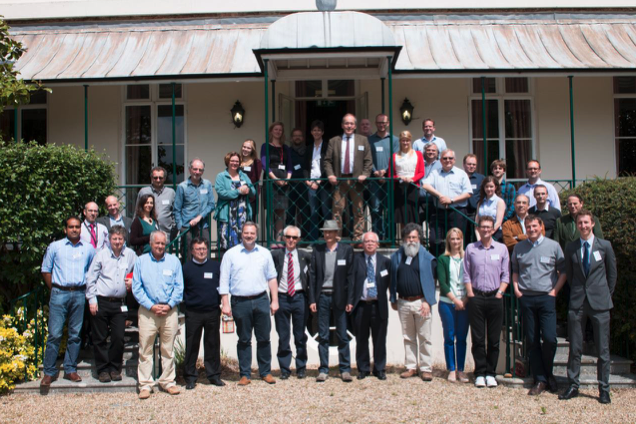Metrology for Climate workshop follows up 2010 BIPM/WMO recommendations challenges for the metrology community specific to ECVs

The National Physical Laboratory (NPL) published an extensive report Metrology for Climate – Metrology priorities for the earth observation and climate community, containing the recommendations from international research organisations on the role of metrology in supporting climate research.
The report summarises the workshop ‘Metrology for Climate’ hosted by the National Physical Laboratory (NPL) on 21-22 May 2015, organised in conjunction with technical experts from European Space Agency (ESA), EUMETSAT, the European Commission, the UK Met Office and the University of Reading. The two-day workshop investigated the role that metrology should play in supporting the robust measurement of Essential Climate Variables.
The concept of Essential Climate Variables (ECVs) provides a systematic and internationally consistent framework of variables/parameters to facilitate the monitoring and understanding of climate change and forecast models. The ability to reliably detect trends from a background of natural variability requires decades of measurements, each with robust uncertainty estimates to enable the necessary long term Climate Data Records (CDRs) to be established. There are many international efforts to collect, analyse and interpret the data in a harmonised manner, and increasingly with the aim to assign an uncertainty to the information that can be traced back to internationally agreed reference standards, ideally those derived and maintained by the international metrology community and underpinned by the international system of physical measurement units (SI).
The workshop followed on from an earlier 2010 workshop organised by the World Meteorological Organisation (WMO) and the Bureau International Poids et Mesures (BIPM), the international coordinating organisation of the national metrology institutes and international metrology. The earlier workshop on Measurement Challenges for Global Observation Systems for Climate Change Monitoring discussed and identified a number of challenges for the metrology community, many of which were acted upon; this workshop revisited some of the specific technical issues as they related to ECVs and attempted to prioritise actions.
The execute summary of the resulting report claims, “(there) is an obligation on the science community to ensure that appropriate levels of confidence and quantification of uncertainty are assigned …in a consistent and robust manner. To achieve this requires a globally coordinated, comprehensive and sustained observing system of satellite and in situ validation measurements that have documented descriptions, and transparent evidence of their traceability and associated breakdown of uncertainty to an invariant reference(s), ideally tied to the international system of units. Where these measurements are further processed into derived bio- geophysical products and/or combined together to form long time base records, these processes should similarly be carried out and documented with the same degree of rigour in terms of traceability and uncertainty as the underpinning measurements.”
The most overarching recommendation of the reports that ,“mechanisms … be sought to encourage greater on-going dialogue between the two communities across the full lifecycle of establishing long- term Climate Data Records: from design of a measurement system through to the linking of multi- decadal data sets i.e. beyond simply providing the nominal calibration of an instrument”.
The following specific recommendations were also suggested:
- To the GCOS and climate/EO community:
- Review of adequacy of climate monitoring;
- Range of target requirements be specified for some ECVs tailored to specific applications;
- Establish adequacy of end-to-end traceability for gap analysis of ECVs and CDRs;
- Clarity of ECV definitions (and measurements including metadata required);
- Identification of a standardised minimum record length for ECVs;
- Specify ‘metrics’ tailored to each ECV; and consistency in use (and assigned values) of ‘stability’ and ‘accuracy’;
- Consistent use and interpretation of metrology terminology (encourage guidance documents)
Updates to GCOS requirements should encompass results of community studies;
- Metrology Recommendations:
- Greater involvement of NMIs in earth observation projects, satellite mission planning and mission implementation; and the provision of tailored guidance on uncertainty analysis;
- Development of SI traceable validation networks, ideally multi-parameter;
- Development of affordable travelling calibration reference standards;
- Establish robust methods to assign associated uncertainties within FCDRs and CDRs;
- Pre-flight calibration of sensors & validation networks should be independently audited by the metrology community;
- Establish a set (all sensor domains) of primary reference satellites to enable interoperability requiring improved on-board calibration systems;